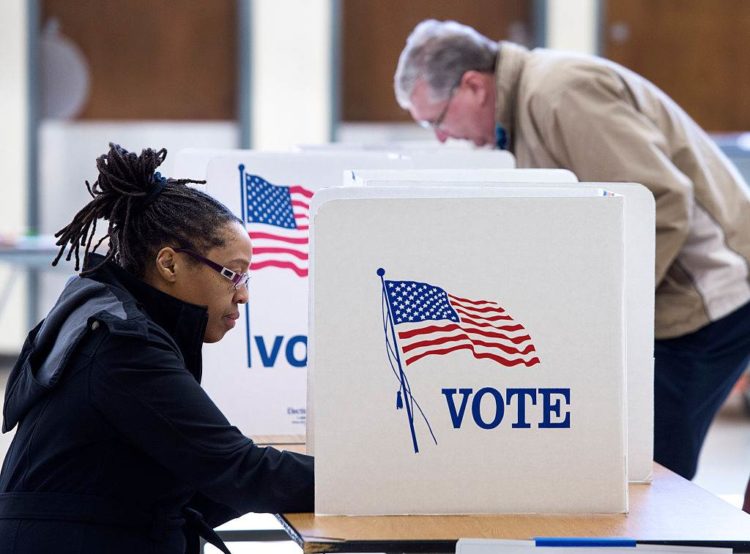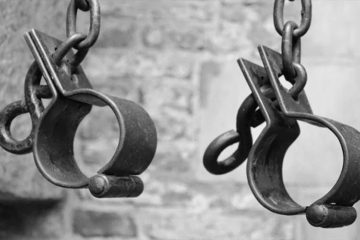Three Reasons for Hope and Gratitude (For All of Us)

Today is the day after our 2016 presidential election. I think our country is full of feelings, ranging from elation, to despair, to exhaustion. There hasn’t been a more divisive election in my lifetime nor probably in many of yours.
Possibly like many of you, I have friends, dear friends, and family who were advocating for opposing presidential candidates. On both sides of the presidential issue I find people who are moral, intelligent, informed, and caring. (I have also come across people on both sides of the presidential debate who are the opposite).
My life is incredibly blessed and enriched by the honest faith, life, and political conversations I have been privileged to have with these people. In a world of ideological echo chambers, too few people know, much less feel comfortable having, an honest conversation with someone who sees things differently than they do., These wonderful, politically-opposite people have given me several great reasons to be hopeful and grateful for the world we get to live in today.
I hope you can find hope and encouragement in these things too.
Warfare at the Polls
As a pastor and a Christian I am a student of history (I still have so much to learn!). Since our faith, and our identity as a Christian people, and our future hope is grounded in history – I find it the most natural thing as a Christian and a teacher of Christians to look at things through the lens of hundreds and even thousands of years.
Our history has outlived and outlasted so many nations and empires. It is full of moments where we were driven off course and we lost our way, and moments where our faith brought such beautiful life-changing and world-changing good out of us.
I think this perspective is what fills me with a sense of awe and wonder every time I have gotten the opportunity to enter a polling station – and never more than this time around.
Those feelings filled me the whole time I was at the polling station on Tuesday, and at the end I got my Georgia voting sticker and stood back and watched in amazement and thought, “In our time and our place, this is what warfare looks like! It’s breathtaking!”
For almost every other time and place in human history the political differences that we feel today would be settled by people taking pointy objects and sticking them into each other or launching them at each other or burning each other’s worlds down. Since these divisions run through my friends and my family this would mean people that I care about spilling each other’s blood to resolve their differences. Political change would mean a significant number of people wouldn’t live to see the outcome. Or even worse and more historically likely, people wouldn’t even get to choose their candidate, but would be violently pressed into service to fight – to slaughter and be slaughtered – for someone not of their choosing.
Instead, today we do warfare differently. We walk into a room that is often organized by senior citizens, chat with our neighbors who might also be our political “enemies,” take a plastic card, stick it in a machine, push a few buttons, return the card, and then we’re done. Our fighting is over. People go home to their children. People go out to coffee with their “adversaries” while laughing and trading stories about their bosses. The fighting is over and everyone is okay. We all get to live to “fight” another day.
The difference is breathtaking and overwhelms me with gratitude.
You Are Not As Alone As You Feel
An unfortunate consequence of our presidential elections, especially ones as tense as this most recent one, is that it is built into the system that no matter who wins, around half of the country will wake up the next morning feeling depressed, overwhelmed, scared, angry, and more alone. It is the feeling that half of your fellow citizens are against you, people like you, and the things you really care about, value and believe in.
It’s an awful feeling. But it isn’t reflective of reality. You are not as alone as you think.
I think it is quite common to assume that when someone (or the voting majority of the nation – or sometimes just the majority of the electoral college) votes against your preferred candidate that they are all voting against things you really care about, value and believe in – but it just isn’t true, at least not as true as you might think.
One of the things I have picked up on during this election from having friends who live in different ideological echo chambers, is that their top issues are often not diametrically opposed to one another, just different. From my anecdotal experience one group’s top five or even ten issues for supporting a particular candidate rarely find their opposite on the opposing group’s top five or top ten list.
This is good news! It means that the polls don’t lockstep reflect how many of your fellow citizens are against you as much as how many people prioritize issues differently than you do – even issues you may consider good and worthwhile, but just maybe not as important as your top issues.
Let me give some value and belief-based examples.
Some people voted for Clinton because:
- They value women’s social, legal and economic equality and women’s rights in the workplace and in healthcare and believe that based on her history and gender she would naturally serve these causes better.
- They value all people being treated equally regardless of their race, gender, sexual orientation, or religious beliefs and believe she would work harder to insure all people are treated equally and set the better example for the nation and the world on how we treat each other.
- They value experience in a given profession and believe her long years of public service at multiple levels of government uniquely qualify her to be trusted with the presidency.
- They value the American dream of getting ahead by working hard but feel burned by student loan debts and believe her support for debt-free college education helps clear that path.
- They value responsible environmental stewardship and believe she would be the stronger advocate for pro-environmental policies against the pressure of big business and big energy companies and lobbyists.
Some people voted for Trump because:
- They value the American dream and believe that the middle class is being gutted by government programs, tax policy, and trade deals and that Trump would make positive changes to these issues.
- They value human life and believe our foreign policy has been provoking a war with Russia, a war which would be catastrophic to human life, and believe that Trump would develop better relations with Russia.
- They value national autonomy and believe that our interventions in the Middle East and around the world have been immoral and catastrophic and believe Trump would be less likely to continue our history of invading, bombing, destabilizing, and coup-ing other countries.
- They value a human’s right to self-preservation and armed self-defense for the preservation of life and believe that Trump would more likely advocate for this right.
- They value a government that serves the people instead of a government of powerful and economic elites who use the government to make the people serve their interests and they believe that Trump will try to turn this around.
Now, regardless of what you believe about the validity these beliefs, these are some of the many top reasons people voted for the candidates that they did (easily verified by a quick Google search). Sometimes it was only one of these values and beliefs that someone voted for, sometimes it was many more. What I want you to see from these lists of five different reasons is that someone’s top reason for voting for the opposing candidate may not have anything to do with what you most value and care about.
Also, I want you to see that just because someone believes something different than you do, doesn’t mean they oppose your values. For example, two people who both value Muslim lives might vote for very different candidates. One might vote for Trump because they believe he is less likely to get them blown up in their home country while one might vote for Clinton because they believe she is more likely to have a favorable immigration policy towards Muslims allowing them to come to America where it is safe – same values, different beliefs and priorities.
You are not as alone in your country as the election might make you feel.
I think it is particularly important in this election to point out that the raw voting numbers also don’t directly reflect race relations, gender issues, or LGTBQ issues. All the solid numbers aren’t out yet, but we know that plenty of white people who voted for Obama in the past specifically because he is black, regardless of his politics – voted for Trump in this election. We also know that a higher than average number (for a Republican candidate), possibly exceptionally high, of black Americans voted for Trump. The same is true for Hispanics. We also know that some men voted for Clinton specifically because she is a woman and we know that plenty of women voted for Trump. There were also a number of LGBTQ groups pulling for Trump for a number of different reasons.
If we take the time to look closer at the detailed numbers when they are all tallied and published, these elections can be a reminder that there is more that defines each of us than the color of our skin, our gender, or our sexual orientation. There is far more to each of us than can possibly be expressed in an “A or B” question.
None of us are as alone as these elections might make us feel – and that is something to be grateful for.
This is Not What The End of the World Looks Like
I have heard today in the devastation of people’s voices and words that they feel almost as if the world has ended or at least drastically shifted under their feet.
Years ago I remember reading a book about the economic collapse in Argentina in 2001. After pages and pages of reading about the challenges that the economic collapse brought on to millions of people – unemployment, homelessness, food shortages, hunger, depression, an explosion in crime and corruption – the author told a story of when he realized what a real cataclysm looks like.
Life had been hard. His family had been struggling to keep food on the table for some time. Things weren’t easy or safe. Then his son got injured – I think he got a bad cut or broke his arm – and he had to take him to the hospital. He was sitting in the waiting room feeling down about how paying for this medical care would set his family back and how hard he’d have to work to pay for it when a doctor walked into the waiting room. The doctor walked over to another family and quietly, but just loud enough the author could overhear, told the family that their six-year-old little boy had an inoperable tumor and didn’t have long to live.
Hearing this immediately changed the man’s perspective. He held his son tight, thanked God for all he’d been given and prayed for this other family. From that moment on he viewed cataclysms and end of the world scenarios differently – he viewed it through the lens of that moment in the hospital waiting room – and it made him a more grateful and resilient person.
We all have so much to be grateful for! Whether you voted red or blue, this presidential election is not what the end of the world looks like.
Hold tight to what matters, thank God for all you’ve been given, and think of someone who really needs your prayers today.


